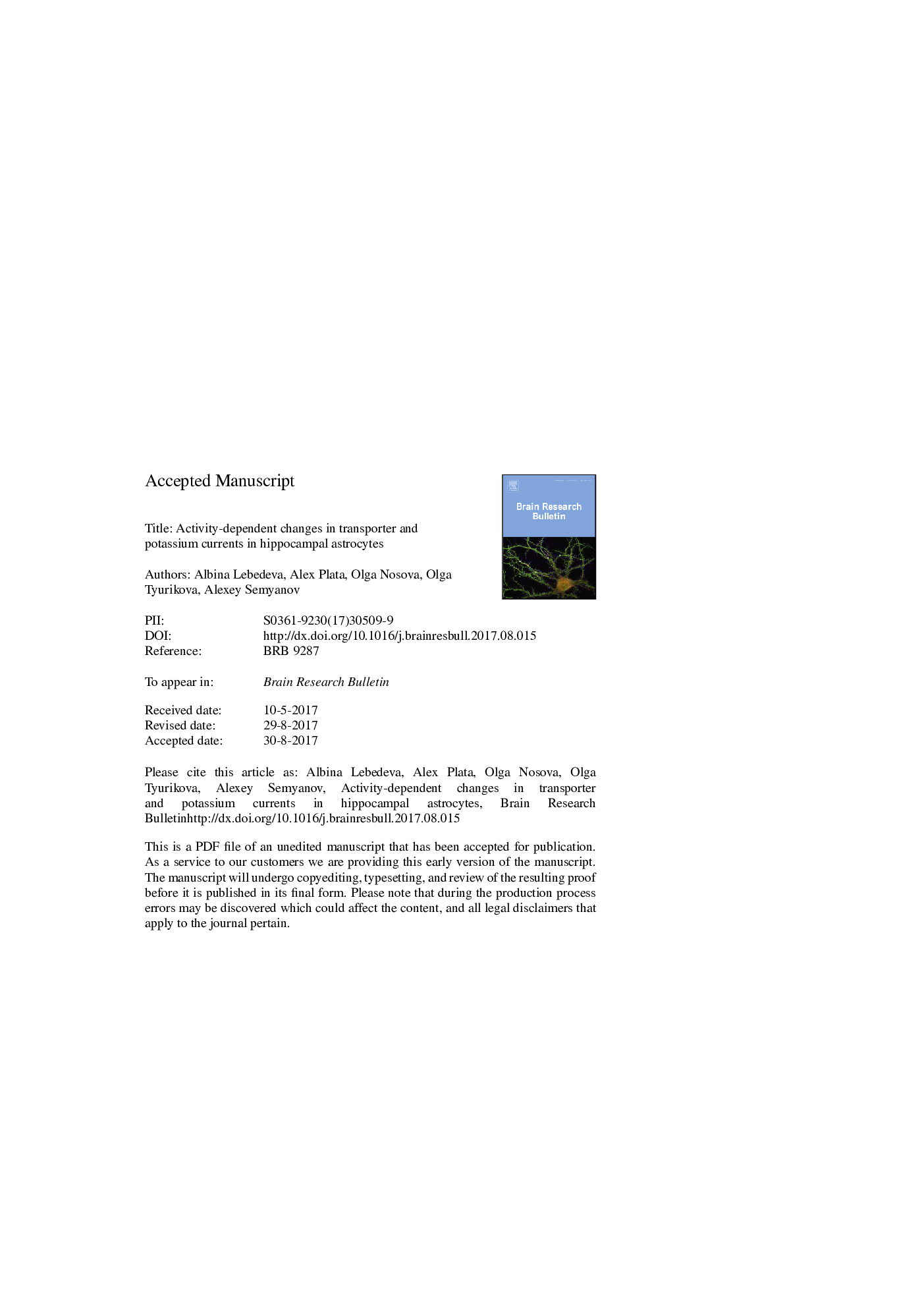| Article ID | Journal | Published Year | Pages | File Type |
|---|---|---|---|---|
| 8839047 | Brain Research Bulletin | 2018 | 23 Pages |
Abstract
Astrocytes are involved in maintenance of synaptic microenvironment by glutamate uptake and K+ clearance. These processes are associated with net charge transfer across the membrane and therefore can be recorded as glutamate transporter (IGluT) and K+ (IK) currents. It has been previously shown that the blockade of IK with BaCl2 enhances the IGluT. Here we show that activity-dependent facilitation (5 stimuli at 50 Hz) of IGluT was not significantly different in BaCl2 compared to facilitation of IGluT isolated by post-hoc subtraction of IK. Nevertheless, BaCl2 abolished the activity-dependent prolongation of Ïdecay, which was observed for IGluT isolated by post-hoc subtraction of IK. This finding suggests that activity-dependent accumulation of extracellular K+ ([K+]o) causes astrocytic depolarization, which is responsible for the increase in Ïdecay of IGluT. The blockade of inward rectifying K+ channels (Kir) with BaCl2 makes astrocytic membrane potential insensitive to [K+]o elevation and thus abolishes this increase. Blockade of IGluT with glutamate transporter blocker, DL-threo-β-benzyloxyaspartic acid (TBOA) did not significantly affect the amplitude of IK but decreased its Ïdecay. However, activity dependent facilitations of both amplitude and Ïdecay of IK were larger in TBOA, than in the control conditions. We suggest that activity-dependent accumulation of extracellular glutamate can enhance release of K+. Thus activity-dependent changes in [K+]o can affect glutamate dwell-time in the synaptic cleft, and vice versa, extracellular glutamate accumulation can affect [K+]o time-course. Our finding is important for understanding of the astrocytic mechanisms in glutamate excitotoxicity and in diseases related to disruption of K+ homeostasis (e.g. stroke, migraine, and epilepsy).
Keywords
Related Topics
Life Sciences
Neuroscience
Cellular and Molecular Neuroscience
Authors
Albina Lebedeva, Alex Plata, Olga Nosova, Olga Tyurikova, Alexey Semyanov,
